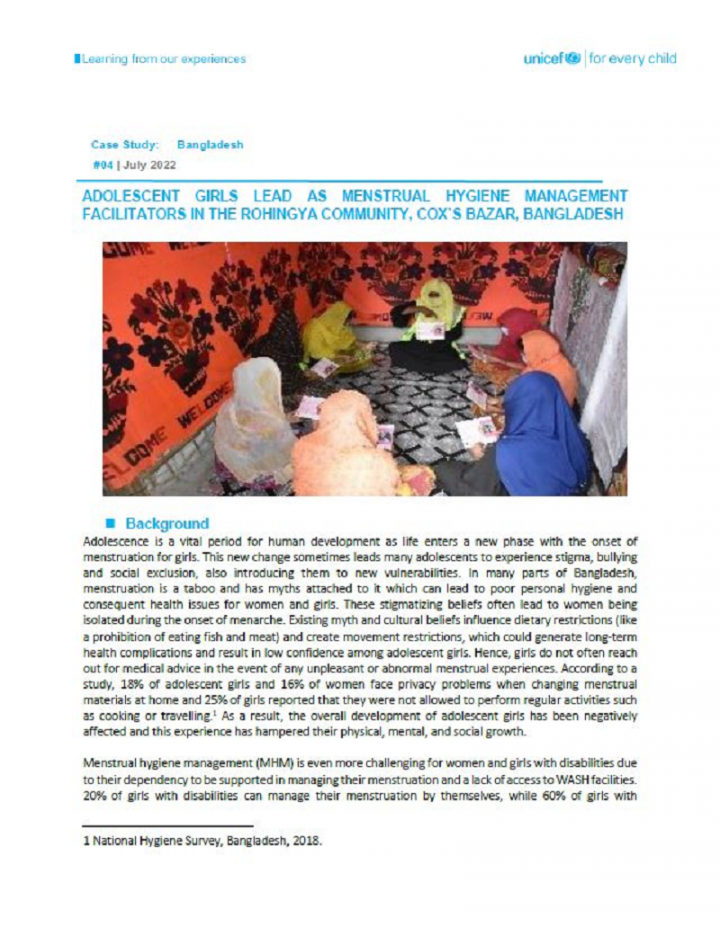ADOLESCENT GIRLS LEAD AS MENSTRUAL HYGIENE MANAGEMENT FACILITATORS IN THE ROHINGYA COMMUNITY, COX`S BAZAR, BANGLADESH Begum, S. (2022)
Adolescence is a vital period for human development as life enters a new phase with the onset of menstruation for girls. This new change sometimes leads many adolescents to experience stigma, bullying and social exclusion, also introducing them to new vulnerabilities. In many parts of Bangladesh, menstruation is a taboo and has myths attached to it which can lead to poor personal hygiene and consequent health issues for women and girls. These stigmatizing beliefs often lead to women being isolated during the onset of menarche. Existing myth and cultural beliefs influence dietary restrictions (like a prohibition of eating fish and meat) and create movement restrictions, which could generate long-term health complications and result in low confidence among adolescent girls. Hence, girls do not often reach out for medical advice in the event of any unpleasant or abnormal menstrual experiences. According to a study, 18% of adolescent girls and 16% of women face privacy problems when changing menstrual materials at home and 25% of girls reported that they were not allowed to perform regular activities such as cooking or travelling. As a result, the overall development of adolescent girls has been negatively affected and this experience has hampered their physical, mental, and social growth.
Bibliographic information
Begum, S. (2022). ADOLESCENT GIRLS LEAD AS MENSTRUAL HYGIENE MANAGEMENT FACILITATORS IN THE ROHINGYA COMMUNITY, COX`S BAZAR, BANGLADESH UNICEF
Filter / Tags
EnglishGender equalityMenstrual Health and Hygiene (MHH)
Downloads
ADOLESCENT GIRLS LEAD AS MENSTRUAL HYGIENE MANAGEMENT FACILITATORS IN THE ROHINGYA COMMUNITY, COX`S BAZAR, BANGLADESH
Type: application/pdf
Size: 0.21 MB

